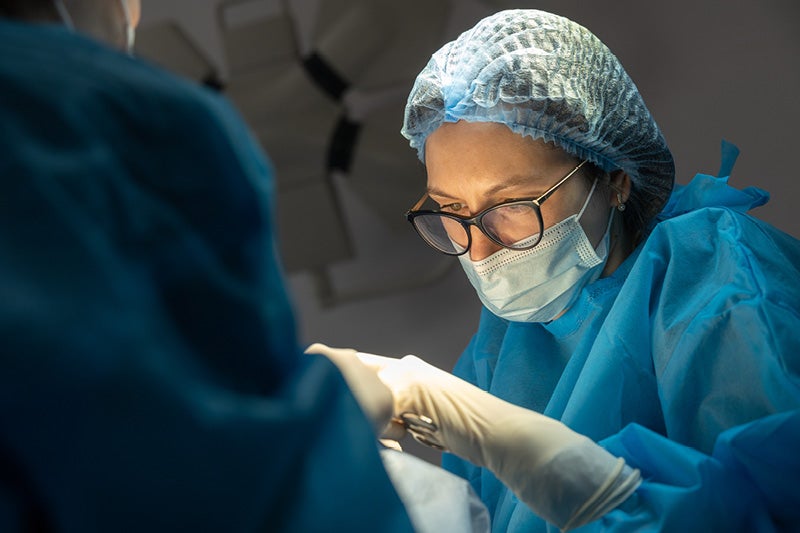What to know before having plastic surgery and how to prepare
January 7, 2025Categories: Plastic Surgery and Aesthetic Care

Having plastic surgery is a deeply personal decision that can have life-changing effects on your confidence and well-being. No matter what procedure you’re having, it’s essential to be well-informed and prepared. Here are some things to think about as you navigate scheduling and preparing for surgery.
Before scheduling your surgery
Prior to even scheduling your procedure, it's important to think about your health.
Making sure you’ve had your annual physical and are up to date on routine labs and testing is a great way to assess if you’re in good health and ready for surgery. This also allows your plastic surgeon to know if you will need any further medical clearance before having surgery.
You may also want to think about whether your weight is stable and as close to your ideal weight as possible. Avoiding a big increase or decrease in weight ensures optimal cosmetic results that last.
Understanding costs
A common question many potential plastic surgery candidates ask is: “Will my insurance cover the surgery?”
The answer is yes, IF the procedure is medically necessary.
Typically, a procedure is considered medically necessary if it enhances health or body function or significantly improves your quality of life. However, the criteria for medical necessity can vary depending on the procedure and the policies of your insurance provider.
To ensure your surgery is covered and meets the necessary requirements, it’s highly recommended that you obtain a referral from your primary care provider before scheduling your initial consultation. This step can help streamline the process and clarify your eligibility.
Your consultation
During your initial consultation, you will receive detailed information about the procedure, including what to expect, potential risks and benefits. Your surgeon will conduct a thorough examination and discuss your medical history to evaluate if you’re suitable for surgery. Based on their findings, the surgeon will provide recommendations and decide if you’re an ideal candidate for the procedure. This consultation is an important step in preparing for surgery and ensuring the best possible outcomes.
Scheduling and prepping for surgery
Once you (and your surgeon) have decided plastic surgery is right for you, allow yourself a couple weeks to find time for your surgery. Then, after your surgery is scheduled, the prep can begin! Common questions include:
What should I do in the weeks leading up to surgery?
Eating a balanced healthy diet and prioritizing protein, plenty of water, good sleep, avoiding nicotine and minimizing alcohol consumption will set you up for smoother surgery and recovery.
How much time do I need for recovery?
Depending on the surgery, you may need one to three weeks for recovery. However, recovery time can vary greatly depending on the patient.
In addition to the initial recovery, you can also expect heavy lifting and weight restrictions for three to four weeks following surgery (Your physician will determine your exact restrictions.)
Can I drive home after surgery?
Depending on your surgery, you will likely need to have someone drive you home and help you around the house so you can rest and recover fully.
Quick tip: preparing healthy meals beforehand can help recovery go smoothly!
If you decide plastic surgery is right for you, you should allow three to six months for the whole process. From referral to your last day of recovery, planning ahead makes the process less stressful and gives you time to do your research and prepare!
To learn more about plastic surgery and types of procedures, visit Plastic and Reconstructive Surgery | MercyOne. If you’re ready to take the first step, request a consultation today!
This blog was medically reviewed by a MercyOne plastic surgery provider.
